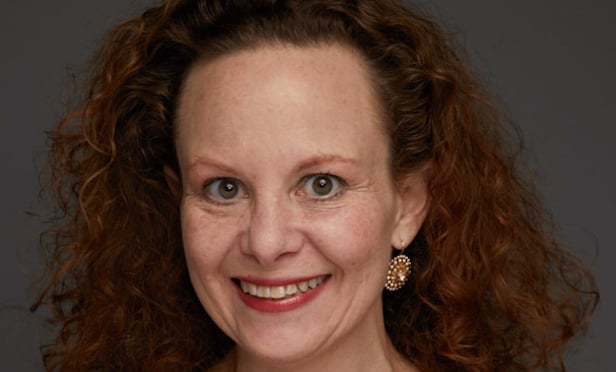NEW YORK CITY—"Real estate is a very old field and it is still 99.999% personal relationships," said Carolyn Fox, an associate broker at Corcoran, attending a Brown University Real Estate Group gathering at The Tippler, a bar in Chelsea Market. "Face to face is everything. It's where business is done. People from Brown are people I would choose to do business with."
Networking accounts for 85% of jobs filled, according to a Performance-Based Hiring Learning Systems survey conducted with LinkedIn. A HubSpot survey reported that virtually 100% of people say face-to-face interactions are essential for long-term business relationships.
These kinds of statistics could partly explain why the Brown group which started in 2012 has grown to 690 members, with chapters in New York City and San Francisco. It hosts about 10 events per year. The attendees at last week's happy hour were quite open to meeting new people—and to networking.
"Real estate is about creating opportunities," said Richard Hershner, principal at RJH Design. "You can't create opportunities if you are standing back and being quiet. You have to have a vision. You have to have guts to be a developer."
In a separate phone interview, the founder of Fireball Network, Deena Baikowitz, explained that networking is about building long-term, meaningful, strategic relationships—throughout one's entire career. A networking expert, Baikowitz is a former board member of CREW New York. She recommends alumni associations because people share a common experience, and are usually involved to help and support one another.
"BREG's mission is to aggregate the alumni community working across multiple sectors of the real estate industry," said Daniel Cayre, a steering committee member and social committee co-chair. His full-time job is as a principal at Clerestory Properties, a retail and creative-office, mixed-use developer. Cayre added "We strive to showcase alumni talent, create career networking opportunities, and pay it forward to the next generation."
Lucien Cohen, a vice president at M&T Bank, is also a steering committee member. He was asked to serve in this position because the group wanted to expand the leadership to include his expertise in banking and construction finance. They were looking to diversify representation of fields for insights and programs.
Cohen said networking is important in real estate finance because partners want to know people before they do a deal with them. They want to see their style, their work and their attitudes about projects. Networking gives people a better sense of how they could work together.
[caption id="attachment_5817" align="alignnone" width="616"] Deena Baikowitz, networking consultant, founder of Fireball Network[/caption]
Deena Baikowitz, networking consultant, founder of Fireball Network[/caption] Networking does not always go down as smoothly as drinks with your alma mater. So, Baikowitz provided GlobeSt.com the following tips for productive networking:
(1) Start with the right attitude. Networking can carry an unsavory connotation of being desperate, asking for favors, imposing on others, or being nice to get something in return. Shed those thoughts. Remember everyone at more than one point in their careers needs something from other people.
(2) Go to the networking event with a goal. It may be recruiting candidates, learning about a company, looking for advice, clients or a new job. Remember everyone is there with a purpose.
(3) Think about who you want to meet and the questions you will ask. What do you want to know? Take the attitude that you are networking to learn.
(4) Determine the environments that make you happy. Baikowitz, a self-described extrovert, says she is like "a kid in a candy store" at a conference with 5,000 people. Others may prefer smaller groups of people they know, like and respect. They may be more comfortable at events with more time for one-on-one conversations.
(5) With large events, you can use a buddy system. But make sure you two break apart at some point to meet other people. Check back with each other, introducing your new acquaintances to meet your buddy—further expanding both of your networks.
(6) Organize and prioritize your efforts. When you come home with a stack of business cards, review your initial goals. Look at whoever is the closest to fulfilling your short-term, immediate needs. Follow up with those people.
(7) Follow up with people with whom you clicked. You never know how you may be able to help each other in the future.
(8) Follow up with somebody completely different from you. Try to create a network that is not only deep but also broad. Avoid networking with too many people in your same field or too similar to yourself. This only limits your future opportunities. Diversify your network.
(9) Finally, networking takes time. It's unlikely that you'll meet a person who the next day will be your newest client or will offer you a job. Networking is a process of getting to know people—building relationships now, which you may need tomorrow.
The next BREG event will be a private viewing of 277 Fifth Ave., and a discussion with Melissa Burch, Kent Swig and Jake Elghanayan, on Thursday, May 17.
(In the interest of disclosure, this reporter is also a graduate of Brown University.)
© Touchpoint Markets, All Rights Reserved. Request academic re-use from www.copyright.com. All other uses, submit a request to [email protected]. For more inforrmation visit Asset & Logo Licensing.

















